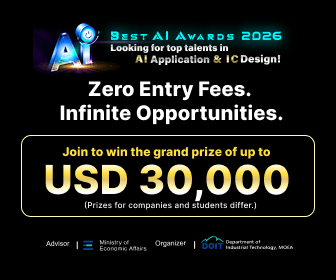Alphabet is intensifying its focus on AI by allocating more resources and integrating AI into its products. Consequently, the company has decided to increase its capex. This decision comes despite facing new challenges from emerging competitors such as DeepSeek.
During an earnings call held on February 4, Alphabet CEO Sundar Pichai highlighted the company's ongoing growth in key sectors. In Search, AI Overviews are now available in more than 100 countries, driving increased user satisfaction and search engagement. Additionally, Circle to Search has been rolled out on over 200 million Android devices. Pichai also noted that Alphabet met its 2024 goal for Cloud and YouTube, achieving a combined annual revenue run rate of US$110 billion, surpassing the target ofUS$100 billion.
Alphabet CFO Anat Ashkenazi shared the company's outlook for 2025, emphasizing plans for significant investments in AI and cloud services. Alphabet expects to allocate approximately US$75 billion in capexs in 2025, primarily focusing on servers and data centers to enhance its infrastructure.
Ashkenazi added that despite these growth initiatives, the company foresees potential challenges, including the impact of foreign exchange fluctuations and the absence of an extra Leap year day, which could affect first-quarter revenues. Additionally, cloud revenue growth may experience variability depending on the timing of new capacity deployments.
Chinese challengers in AI, particularly DeepSeek
Pichai responded to investor concerns about the long-term cost curve for AI, particularly in light of news about DeepSeek's advancements. Pichai acknowledged the impressive work of DeepSeek's team while highlighting Alphabet's competitive advantage in cost efficiency and performance. He emphasized that Alphabet's Gemini 2.0 and Flash models are among the most efficient AI models, outperforming DeepSeek's V3 and R1 in terms of cost per query and latency.
Pichai noted that Alphabet's integrated approach to model development and optimization has positioned the company well to manage the growing demand for AI workloads, both for its products and cloud services.
Pichai also addressed the shifting focus from training to inference in AI, noting that a greater portion of AI spending has been directed toward inference in recent years, which is critical for businesses seeking good return on invested capital (ROIC). He expressed confidence that this trend will continue to accelerate as reasoning models scale, reducing costs and making more AI use cases feasible. Pichai's remarks underscored Alphabet's strong commitment to driving AI advancements and maintaining its position at the forefront of the sector.
Efficiency and capex plan
Ashkenazi outlined the company's plans for driving efficiency and managing capexs moving forward. The company is focusing on maximizing productivity across key areas, particularly AI and cloud services, which are expected to drive future growth.
As part of its strategy, Alphabet will allocate US$75 billion in capex this year, with the majority directed toward enhancing its technical infrastructure, including servers and data centers. Ashkenazi emphasized the importance of managing these investments efficiently to support the company's infrastructure needs while optimizing cost.
In addition to its infrastructure investments, Alphabet plans to manage headcount growth carefully and streamline its operations. This includes optimizing its real estate footprint and simplifying organizational structures, such as bringing together AI research teams to boost operational speed. The company is also leveraging its own AI tools to improve internal processes, including automating code writing and other key functions.
On capital allocation, Ashkenazi noted that Alphabet is applying rigorous governance to ensure investments are aligned with customer demand, particularly in cloud services, where demand currently exceeds available capacity. The company plans to repurpose its infrastructure across various services, including Google Services, Google Cloud, and Search, to maximize efficiency.
Alphabet's self-designed data centers and customized Tensor Processing Units (TPUs) are central to this strategy, delivering industry-leading performance in terms of cost and power efficiency. Looking ahead, Alphabet will continue to evaluate its capital investments with a focus on optimizing both performance and efficiency.




